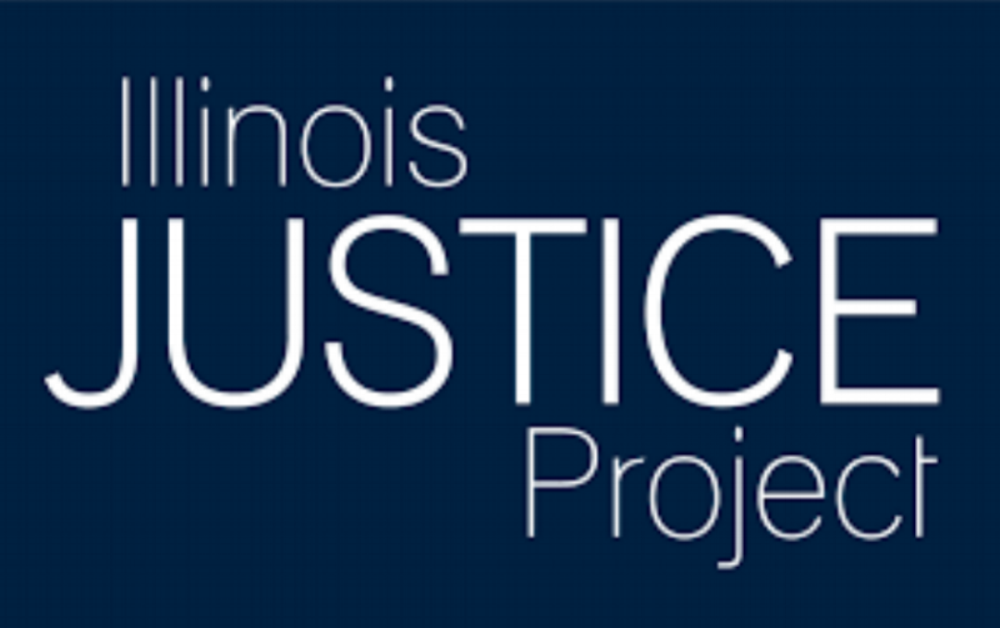ADULT JUSTICE
Adult Redeploy
ILJP helped develop and monitor the administration of Adult Redeploy Illinois (ARI), a state program established by the Crime Reduction Act of 2009 to provide financial incentives to jurisdictions for programs that allow for the diversion of nonviolent offenders from state prisons by providing community based services. Adult Redeploy is modeled on the successful juvenile model, which has operated in Illinois since 2004.
Since Adult Redeploy’s inception in 2011, ARI has distributed over $15.5 million in grants to local jurisdictions to support problem-solving courts, enhanced probation supervision with services and other evidence-based intervention responsive to the needs of their communities. As of 2016, ARI had 20 sites and 39 programs across 39 counties. ILJP continues to advocate for increased funding for ARI and expansion to new jurisdictions.
Did You Know: The per capita cost of adult incarceration is approximate $23,400 per year, while the average ARI intervention cost is about $4,400. Since 2011, the ARI statewide network of sites diverted almost 3,000 non-violent offenders from Illinois prisons, representing cost avoidance to the the state of nearly $100 million. The cost of recidivism is even higher, as the Illinois Sentencing Policy Advisory Counsel (SPAC) estimates that the average recidivism event is $118,746.
Bond Court Reform
Too often access to money, not risk to community safety or the likelihood of returning to court for trial, is the determining factor in whether someone is held in jail pending trial. ILJP has established partnerships with organizations in the bond reform movement and to expand the umbrella of individuals and groups working on that issue. ILJP has worked with our partners to understand how the system works across the state and has served as a resource to those looking to develop policy solutions.
ILJP has been actively engaged in the policy discussions regarding how best to implement bond reform in Illinois. Cook County Board President Toni Preckwinkle, Sheriff Tom Dart, Chief Judge Timothy Evans, State’s Attorney Kim Foxx, Public Defender Amy Campanelli and many other stake holders have called for reforms.
ILJP has helped develop a set of principles to serve as the basis for policy decisions to reduce the number of individuals in pretrial incarceration who do not pose a risk to community safety and who will likely appear for their court hearings.
The need to achieve comprehensive bond reform remains even after the passage of SB 2034, the Bail Reform Act of 2017, Public Act 100-0001. While the act is a strong first step, the job of bond reform will not be complete until the use of cash bond and overuse of pre-trial detention is ended. Money should never be a factor in determining whether a person remains in jail while awaiting trial. The act, while taking a ceremonial step forward, wasn't as comprehensive as other proposals ILJP also supported and allows for this inefficient, unjust, expensive and dangerous practice to continue.
ILJP supports the adoption of a proposed Supreme Court Rule, that would require an evidentiary hearing and a finding by judges that an accused person in any criminal case is able to afford the amount of monetary bail levied. This rule would help end the Illinois courts' current practice of setting bail at amounts higher than the accused can afford and would help bring Illinois courts into compliance with federal and state law. The rule is supported by nearly every local stakeholder in the Cook County criminal justice system.
The illegal and unconstitutional nature of the current system, even after the Bail Reform Act of 2017 was passed, was detailed in depth by a July 2017 Memorandum of Law prepared by former United States Attorney General Eric Holder, Jr. and his law firm, Covington & Burling, LLP. The report can be found here.
Did You Know: As of February 2017, over 95% of individuals detained at Cook County Jail have not had a trial. Some 62% of these individuals incarcerated and awaiting trial have been assigned a cash bond that they cannot afford. While the jail population in Cook County has seen reductions due to local reforms, including Chief Judge Evans' new bond order, the percentage of individuals in jail before trial and on a cash bond remains similar.
Gun Violence Reduction
With gun violence reaching record high levels not seen since the 1990s, Chicago government leaders, community partners, and advocates are searching for solutions to reduce the violence. ILJP – as a part of a coalition of more than 40 organizations – has worked to develop a set of principles and a strategy to address gun violence. The principles focus on limiting the flow of illegal guns into the community, treating gun violence as a public health issue, encourageing investment in under-resourced communities that lack proper housing and employment opportunities and improving police effectiveness and accountability.
ILJP will continue to advocate for a comprehensive response to gun violence. While the problems of illegal gun possession and use must be addressed, focusing on legislative solutions that only increase penalties for gun possessors has historically proven to be ineffective. Longer sentences only grow a prison population whose numbers at current levels make it difficult to deliver the rehabilitation services needed for those who leave prison. Providing prevention and intervention resources for those who are potential victims or perpetrators of violence is key.
ILJP supports efforts to license gun dealers, to help stop the arming of individuals contributing to the violence. An effective law would include common sense reforms, such as training employees to identify straw purchasers, video recording at the gun stores, better record keeping, in-store signage warnings, and improving law enforcement’s ability to verify that best practices are followed by dealers to ensure safe practices. These elements have been proven to reduce illegal gun flow in other jurisdictions.
Did You Know: Illinois has increased penalties for gun offenses six times since the year 2000, and only two states impose longer prison sentences for use of a firearm to commit a violent crime.
Re-Entry
More than 97% of the men and women sent to state prisons someday will return to their home communities. Therefore, rehabilitation in prison should be a top priority of the Illinois Department of Corrections (IDOC).
ILJP supports the efforts of IDOC to convert the recently shuttered Kewanee and Murphysboro juvenile prisons and the Logan adult prisons into new Life Skills Prisons. The development of these new institutions will assist IDOC in meeting its goal of reducing recidivism by 20% by the year 2025 and help achieve the Commission on Criminal Justice and Sentencing Reform’s goal of reducing the prison population by 25% by 2025. Implementation of the new Life Skills Prison model will require an overhaul of operations, facilities, and programming; but if successful, it can produce an environment that works to enhance positive outcomes and equip individuals returning to the community to lead productive, self-sufficient, law-abiding lives.
ILJP is continuing to advocate for policies that help returning citizens not re-offend. One key piece of successful re-entry is ensuring that individuals returning from prison have access to safe and affordable housing. The lack of access to fair housing creates significant barriers to reentry and fosters an environment that encourages recidivism. A report on this issue, researched and written in partnership with the Metropolitan Planning Council, should be released in 2018. Employment and record expungement are also key pieces to successful re-entry.
As criminal justice reform seems to be taking hold on many levels and prison populations continue to decline, those who serve their time for sex offenses are still vilified and tightly regulated regardless of the offense. Unfortunately, Illinois has not adopted modern treatment policy. ILJP supports changes that can improve outcomes for both community safety and ex-offender treatment, and has been involved in monitoring the work of the Sex Offenses and Sex Offender Registration Task Force, empaneled to examine this issue.
Did You Know: IDOC estimates that 48% of those leaving state prisons will return to prison within three years, either for parole violations or new crimes.
Sentencing Reform
ILJP works closely with the Sentencing Policy Advisory Council (SPAC) to ensure effective evaluation of current and recommended sentencing policies. SPAC was created in 2009 as part of an ILJP-backed policy package to collect, analyze and present data from all relevant sources to determine the consequences of sentencing legislative proposals and to review the effectiveness and efficiency of current sentencing policies and practices.
ILJP was part of Governor Rauner’s Transition Team, the work of which led to the issuance of an executive order creating the Governor’s Commission on Public Safety and Sentencing Reform. Working with staff, commissioners and advocates, ILJP continues to encourage progress on a broad range of issues that will help reach the goal of reducing the prison population by 25% by 2025. The Illinois General Assembly has started the process, fully ratifying four of the 25 legislative recommendations made by the Commission, and ILJP continues to work to encourage the legislature and governor to act on the others. ILJP advocates for a sentencing system that permits discretion so that individuals are assessed and sentenced in a way that makes them more likely to succeed in life and not commit future crimes.
Did You Know: Recently enacted legislation requires judges to review a probation officer's assessment of defendants found guilty or pleading guilty to a crime. If individuals with no prior probation or prison sentences are sentenced to prison, the sentencing judge must provide an explanation of why incarceration in IDOC is appropriate.
ASSESSING HOW BEST TO PREPARE PRISONERS FOR SUCCESS
ILJP has advocated for the full implementation and funding of the Risk Assets and Needs Assessment (RANA) instrument used by IDOC.
RANA was created to ensure that every inmate would be assessed to determine the best treatment plans and necessary supports for community reintegration. It is intended to assure people would receive services according to their risks and needs and that incarceration would be reserved for those most violent and highest risk offenders. The emphasis on assets is intended to encourage the criminal justice system to build on the strengths of those involved in crime in order to make them successful community members when released.
Since the passage of the Crime Reduction Act of 2009 (which mandated the implementation of RANA), ILJP has partnered with IDOC to implement RANA statewide. ILJP also supports alternatives to incarceration and reduced confinement for low-level offenders through Adult Redeploy Illinois and other programs.
CLEAR Commission
Metropolis Strategies, the forerunner to the Illinois Justice Project, initiated, staffed and developed the CLEAR Commission, an independent and bipartisan commission charged with the goal of making the 1961 Illinois Criminal Code more readable, understandable, consistent and just.
In early 2005, the CLEAR Commission began the intensive process of reviewing of every page of the Code. Commission members stripped away portions of the code that had been ruled unconstitutional and reordered the statutes without changing the crimes and punishments. More than providing cosmetic upgrades, the changes helped to avoid redundancies, inconsistanct provisions and confusion in the code that led to lengthy and expensive disputes, retrials and delays. The Commission recommendations are codified in the New Criminal Code of 2012.
The CLEAR Commission was co-chaired by former Governor James R. Thompson and former Appellate Court Justice Gino L. DiVito. The Commission was composed of legislators, the Attorney General, prosecutors, judges, defense attorneys, law enforcement and other criminal law experts.
Did You Know: Before the CLEAR Commission's streamlining the Criminal Code was a 30,000-word document. The Commission reviewed each word of the Code and trimmed over 1/3 of the text.

